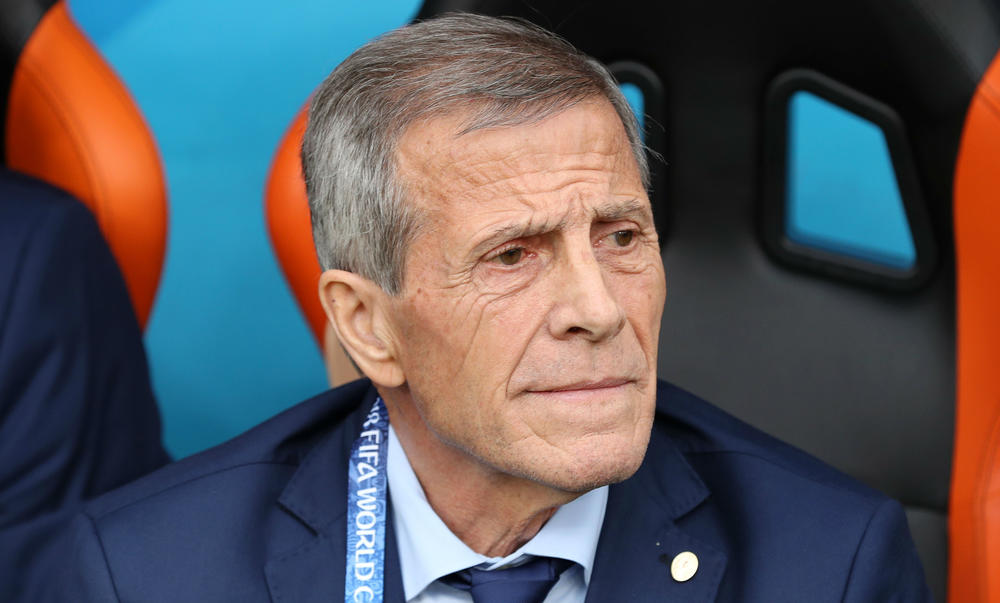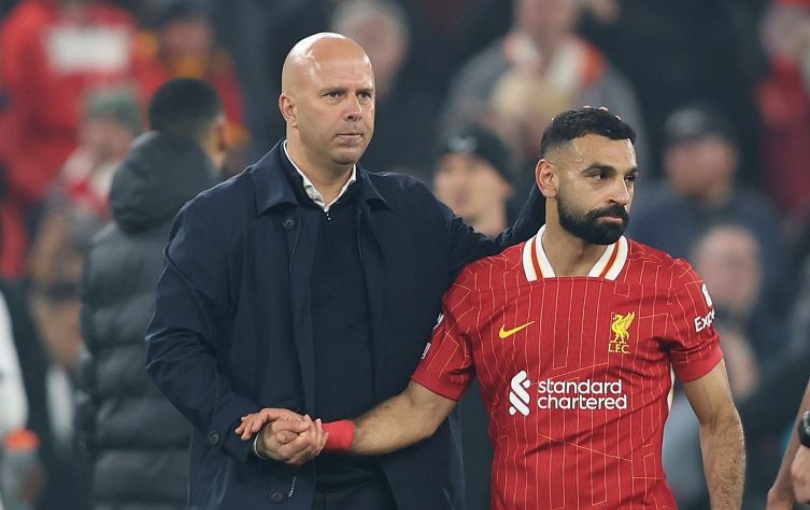Back on the map and earning letters from ladies, Tabarez embraces Uruguay's heritage
The challenging legacy bequeathed to the first winners of the World Cup is a source of inspiration for Uruguay's Oscar Tabarez.

Just a short amount of time in the presence of Oscar Tabarez would be enough to transform even a hardened cynic into a true believer in the enduring virtues of the beautiful game.
Uruguay's 71-year-old coach has seen it all.
In 1990 he led the Celeste at the World Cup in Italy, securing the national team's first victory on the big stage since 1970, before bowing out to the hosts in the round of 16.
That long overdue 1-0 win over South Korea in Udine, tantalising respite for the country's long-suffering fans, was Uruguay's last at the World Cup until Tabarez returned to the country's top job.
After 16 years at club level, working for the likes of Boca Juniors, AC Milan and Velez Sarsfield, Tabarez was not content with a token, one-off success the second time around.
Instead, he steered a squad boasting Diego Forlan, Luis Suarez and Edinson Cavani all the way to the World Cup semi-finals in 2010, before sealing Copa America glory the following year.
Born in Montevideo in 1947, Tabarez grew up in an era when Uruguay's dominance of football was a tangible, contemporary reality.
Get FourFourTwo Newsletter
The best features, fun and footballing quizzes, straight to your inbox every week.
Inaugural hosts and champions in 1930, they won the prize again in 1950, stunning Brazil in the infamous upset that came to be known as the 'Maracanazo' among mourning, expectant supporters of the Selecao.
será el Mundial número 21 del la historia. participó en 12 oportunidades. Conquistó el trofeo 2 veces, en 1930 y 1950, y logró el 4to puesto en Suiza 1954, México 1970 y Sudáfrica 2010.Más información de en los Mundiales:June 14, 2018
Daunting as the task may seem, Tabarez has consistently embraced the challenge of living up to Uruguay's demanding legacy.
"In the very beginnings of football, which was introduced by the British, we were really a powerhouse," he told a rapt audience of reporters at Rostov Arena on Tuesday, ahead of a meeting with Saudi Arabia in what is his fourth time coaching at the World Cup.
"Then we lost the way to transmit wisdom in football from one generation to the next. When I had three or four years on sabbatical when I didn't work in football I thought a lot about this, how we can get Uruguay with its demographic limitations, back on the map.
"And I think, modestly, we have achieved this. We are a difficult opponent. You can say we're not [recent] champions. But from our point of view, our football culture, there are very few countries like that and Uruguay is one of them, together with Argentina and Brazil in South America.
"In Europe, there is England, Germany, and Spain perhaps, but that was not the case in the 1920s and 30s when Uruguay was a powerhouse."
Audio y video de la conferencia de prensa oficial de y Oscar Tabárez previa al entrenamiento de reconocimiento en el Arena Rostov: June 19, 2018
Being diagnosed with neurological disease Guillain-Barre syndrome two years ago has not prevented Tabarez from continuing his exemplary work, and the support of a walking stick was the only concession to his condition visible to the watching media as he oversaw training on the banks of the Don River this week.
Reverently addressed by some journalists as 'maestro', Tabarez's reminisces were triggered by a question about the images of supporters cheering the team on back home, scenes that have become far more commonplace during his tenure, now in its 11th year.
"When I see these very young kids watching the match at school, that's what we used to do, with the permission of the school authorities… they put regular classes aside for the duration of the World Cup and that helped to prevent absenteeism," he said.
"Football is a religion in Uruguay, that's how people like to win, with goals at the end of matches, and then they run out into the playground in a different way. These kids will never forget that experience and they will tell their grandkids about it.
"We have a connection now between generations. Uruguay is painted light blue. Flags, balloons, monuments, pedestrian crossings… I feel pride and I want to express this.
"If we win any other matches like we did in South Africa, I am going to get letters from ladies and they will say 'I used to hate football but now after the matches I go out into the street and hug people.' And this is part of what we do on the pitch."
Should they, as expected, see off Saudi Arabia, another trip to the round of 16 and perhaps beyond beckons, even before the final game of Group A against hosts Russia.
Football converts of Uruguay - men, women and children alike - prepare your correspondence, addressed care of Oscar Washington Tabarez, Uruguayan Football Association.
